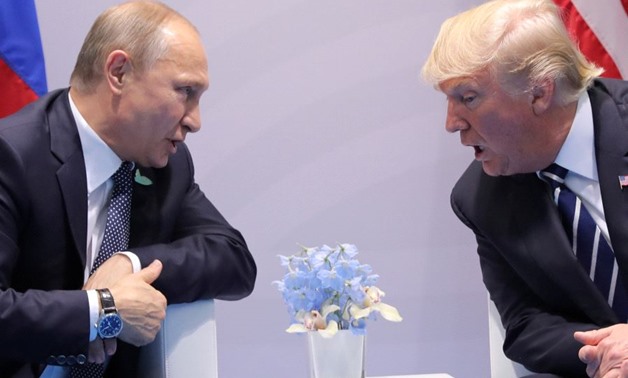
UK welcomes Trump-Putin meeting, says it must address Russian "malign activity"
BRUSSELS - 12 July 2018: British Prime Minister Theresa May will on Wednesday welcome a summit between U.S. President Donald Trump and his Russian counterpart Vladimir Putin, but say that it must be used to cut the risk of confrontation and address Russian "malign activity".
Trump is due to meet Putin on Monday, a meeting which has raised eyebrows among Western allies because it comes days after the U.S. leader attended a NATO summit aimed at bolstering Europe's defences against what it calls Russian aggression.
May's spokesman, speaking to reporters ahead of a dinner for NATO leaders on Wednesday, said the prime minister was planning to highlight Kremlin-linked cyber attacks and the use of a Soviet-era nerve agent on British soil.
"I welcome President Trump's forthcoming meeting with President Putin: open channels of communication between the U.S. and Russia are key to managing the risks of confrontation," she planned to say, according to the spokesman.
Her endorsement of the Trump-Putin meeting attempts to cut off awkward questions about Trump's commitment to NATO, an organisation he has openly and repeatedly criticised, which has dogged the ongoing NATO summit and threatened to undermine Trump's visit to London later this week.
Earlier on Wednesday, Trump called for NATO leaders to increase their defence spending to 4 percent of their country's economic output -- double the group's goal of 2 percent, which only a handful of members currently meet anyway.
Britain's official stance on Russia has been 'engage, but beware', but direct diplomatic relations have effectively frozen since London blamed Moscow for the use of a nerve agent in an attempted murder of a Russian former spy living in England.
Russia has denied any involvement in the incident, and rejects Western claims that it has orchestrated high profile cyber attacks.
At the NATO dinner, May will look to leverage the presence of fellow Western leaders by urging that engagement with Russia must come from a position of strength, underpinned by a strong transatlantic alliance.
"As we engage Russia we must do so from a position of unity and strength -- holding out hope for a better future, but also clear and unwavering on where Russia needs to change its behaviour for this to become a reality," she planned to say.
"And, as long as Russia persists in its efforts to undermine our interests and values, we must continue to deter and counter them."
Comments
Leave a Comment